Dec. 6, Tripoli Court nullifies Al-Zawiya Court ruling disqualifying LNA Marshal Haftar’s presidential bid, reinstates him as candidate.
Dec. 7, protesters hold sit-in in front of HNEC Tripoli HQ, calling for Presidential elections postponement constitutional referendum.
Dec. 9, Prime Minister Abdel-Hamid Dbaiba removed from the Presidential candidates list.
Dec. 8, JMC meets Russian officials in Moscow, including Dep. FM Bogdanov, focusing on upcoming elections, mercenaries withdrawal.
Dec. 12, NOC director Abulgasem Shengheer released after “unlawful” arrest at Tripoli’s Mitiga Airport in late October.
Dec. 12, US, France, Italy, UK, Germany hail arrival of UN Sec.-Gen. Special Adviser Stephanie Williams to Tripoli following UNSMIL chief Ján Kubiš’s resignation.
TRIPOLI
- On the evening of Dec. 7, a number of protesters held a sit-in in front of the National High Election Commission (HNEC) headquarters in Tripoli. They called for the postponement of the Presidential elections until a referendum on the constitution is held. Video clips show parties affiliated with the “February 17 Revolution” from Tripoli, Al-Zawiya, and Misrata at the HNEC headquarters, setting up tents and raising slogans “No elections before a constitution.” This sit-in came hours before the commission announced the final list of candidates eligible to run for the Presidential elections scheduled for 24 December.
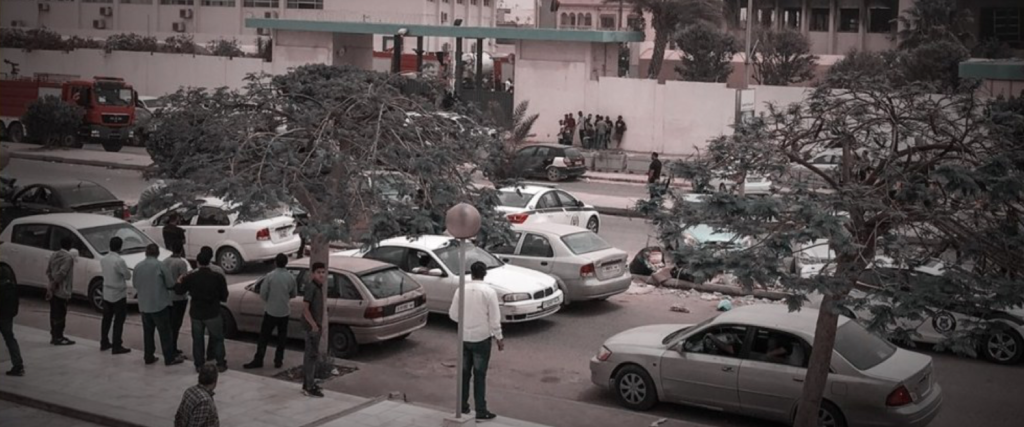
MISRATA
- Dec. 7, the National Human Rights Commission in Libya reported that a political activist was kidnapped by unidentified gunmen in the Western city of Misrata. It stated that the kidnapping of Hamza El-Traiki came after he had published Facebook posts, in which he discussed corruption related to the Prime Minister of the Government of National Unity (GNU), Abdel-Hamid Dbaiba and criticized his policies.
NATIONAL SECURITY
- Dec. 12, a member of the Board of Directors of the National Oil Corporation (NOC), Abulgasem Shengheer was released, according to the Undersecretary of the Ministry of Oil, Rifaat Al-Abbar. Al-Abbar affirmed his full support for the NOC, stressing the need for it to distance itself from political strife, and continue its technical work in maintaining the progress and sustainability of oil operations. In late October, the NOC condemned the “unlawful” arrest of Shengheer, who was stopped at Tripoli’s Mitiga Airport while returning from abroad with his family;
- Dec. 11, the Chief of Staff of Libya’s Western-based Army, Major General Mohamed Al-Haddad, and the designated Commander in Chief of the Eastern-based Libyan National Army (LNA), Lieutenant-General Abdulrazek Al-Nathouri met in the city of Sirte. Al-Haddad and Al-Nathouri met inside the Al-Mahari Hotel, which was surrounded by security personnel from all sides. At a time when media professionals and journalists tried to enter the hotel to follow the event, the security forces prevented them from entering and asked them to leave the place;
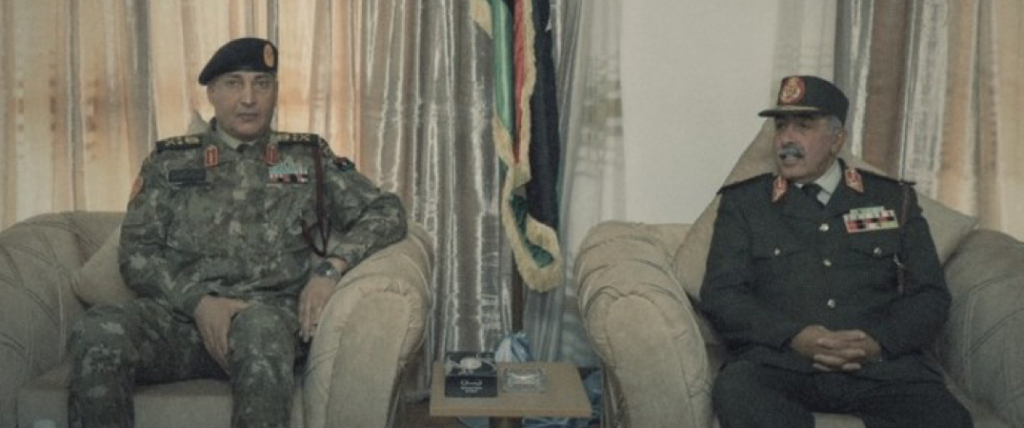
- Dec. 9, Italian radar site ‘ItaMilRadar’ reported that a Turkish military cargo aircraft landed in western Libya. The website stated that the Airbus A400M plane (reg. 18-0093) departed Ankara earlier today, and arrived at the Al-Watiya airbase, west of Tripoli, at 12:55 CET. During its flight, the aircraft reportedly did not enter Greek airspace, according to the website;

- Dec. 7, the Libyan National Army (LNA) announced that they had destroyed 3 tons of explosives and remnants of war, in the Al-Aqrabeya area, south of the city of Al-Jamil. In a statement, the LNA’s Moral Guidance Department stated that this comes within the framework of “ensuring the safety of Libyan citizens and the security of public and private properties.” It explained that a detachment of the Military Engineering Division had destroyed the large quantities of explosives;

NATIONAL POLITICS, SOCIAL AND ECONOMIC ISSUES
- Dec. 12, senior officials at Libya’s Ministry of Interior held a meeting to discuss the mechanisms required to secure the upcoming Presidential and Parliamentary elections. During the talks, the heads of security directorates reviewed security plans to protect citizens while casting their votes, as well as measures to secure polling stations and the roads leading to them. They stressed the need to “preserve the dignity of the Libyan citizen, enforce the law, deter criminals, and bring those who seek to spoil the electoral process to justice.”;
- Dec. 11, the committee formed by the Libyan House of Representatives (HoR) and concerned with following up the electoral process, represented by its Chairman, Al-Hadi Al-Saghir, and member of the Committee, Talal Al-Mihoub, began its work with a meeting with the head of the High National Election Commission (HNEC), Imad Al-Sayeh. The HNEC explained that the meeting brought the both sides together at its headquarters in Tripoli. They discussed the latest developments in the electoral process for electing the Head of State, and the difficulties and obstacles facing this process;
- Dec. 9, The Libyan Parliament is seeking to remove ineligible candidates, including interim Prime Minister Abdel-Hamid Dbaiba from the Presidential race, according to the adviser to the Parliament’s Speaker, Fathi Al-Marimi. In a press interview, Al-Marimi stressed the need to abide by the electoral laws, explaining that the Parliament formed a committee to communicate with the High National Elections Commission (HNEC). Notably, prior to taking office, Prime Minister Dbaiba pledged that he would not run for elections, according to the agreed-upon roadmap. He has since reneged on his promise, and is now one of the strongest contenders in the Presidential race;
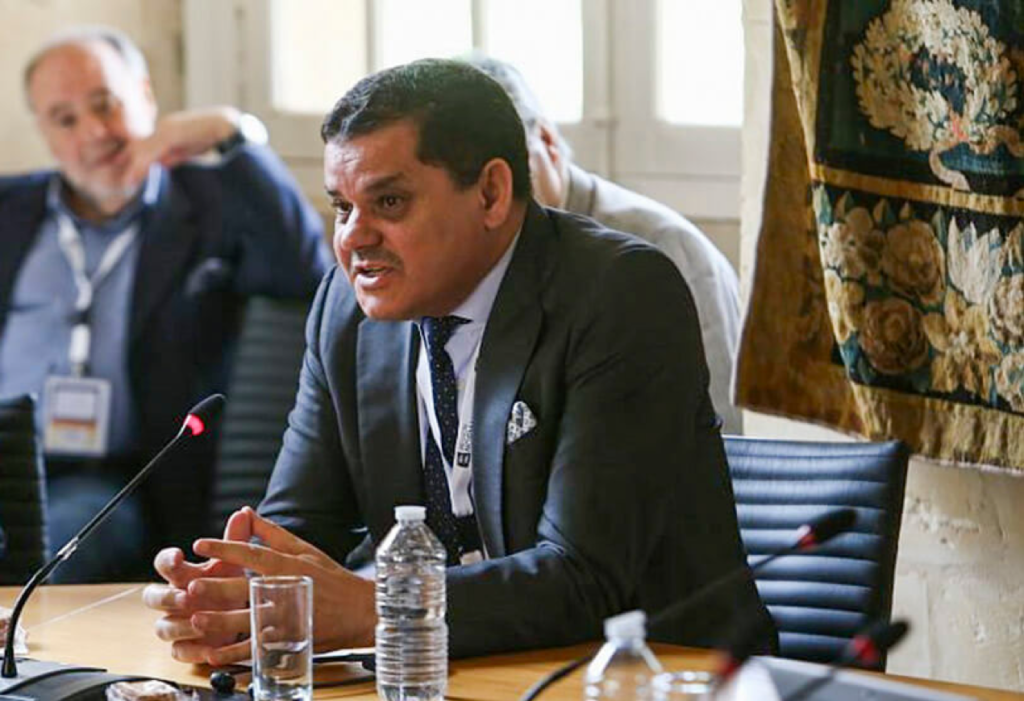
- Dec. 6, the Tripoli Court of Appeals nullified the Al-Zawiya Court ruling disqualifying the Commander of the Libyan National Army (LNA), Field Marshal Khalifa Haftar’s presidential bid and reinstated him as a candidate. Today’s ruling comes a week after Al-Zawiya Court of First Instance accepted an appeal lodged against Haftar’s candidacy. It had ruled to exclude him from the list of candidates for the 24 December elections;
- Dec. 6, the Tripoli Court of Appeals nullified the Al-Zawiya Court ruling disqualifying the Commander of the Libyan National Army (LNA), Field Marshal Khalifa Haftar’s presidential bid and reinstated him as a candidate. Today’s ruling comes a week after Al-Zawiya Court of First Instance accepted an appeal lodged against Haftar’s candidacy. It had ruled to exclude him from the list of candidates for the 24 December elections.
INTERNATIONAL RELATIONS
- Dec. 12, the embassies of the US, France, Italy, UK, and Germany welcomed the arrival of Special Adviser to the United Nations (UN) Secretary-General for Libya, Stephanie Williams, to Tripoli, following UNSMIL chief Ján Kubiš’s resignation. The diplomat previously served as Acting Special Representative and Head of the United Nations Support Mission to Libya (UNSMIL) from 2020 to 2021, as well as UNSMIL’s Deputy Special Representative from 2018 to 2020. UNSMIL noted that the newly-appointed UN adviser will work with Libyan actors to help them sustain the momentum created for national elections by the unprecedented voter registration turnout, successful distribution of voter cards, and registration of a high number of presidential and parliamentary candidates;
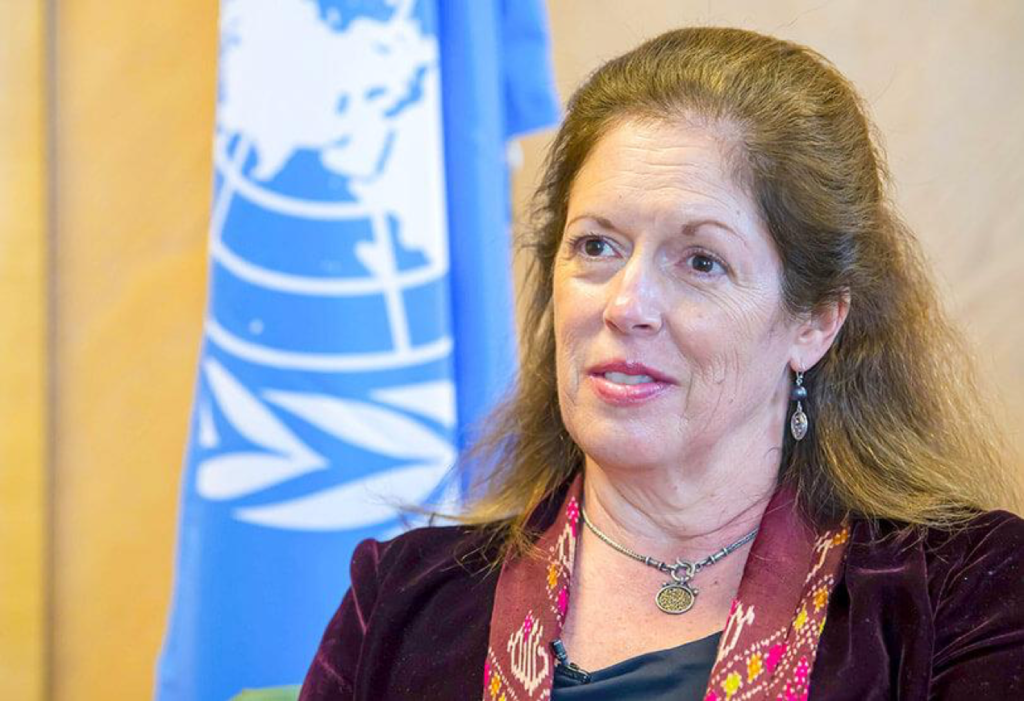
- Dec. 12, Egyptian Foreign Minister, Sameh Shoukry said he agreed with the Gulf states on the necessity of holding the Libyan elections on 24 December, as scheduled. In an interview with MBC Egypt, he made it clear that the Libyan elections should be “free and fair.” Shoukry also stressed that Egypt and the Gulf states are fully convinced of the need for all foreign forces and mercenaries to leave Libya; and ensure the return of stability to the country;
- Dec. 11, the Tunisian Minister of Foreign Affairs, Othman Al-Jerandi, said that his country spares no effort to advance the Libyan political track. He stressed that Libya’s security and stability are a top priority for Tunisia. These remarks came during his meeting with German Ambassador to Tunisia, Peter Prügel, according to a statement by the Tunisian Foreign Ministry;
- Dec. 11, Niger’s President, Mohamed Bazoum, pleaded with the United Nations (UN) to proceed with holding the presidential election in Libya as planned Dec. 24th. According to him, the election, which is supposed to turn a new page for Libya after a decade of conflict, represents a “crucial” step to restore peace in this country and in the Sahel;
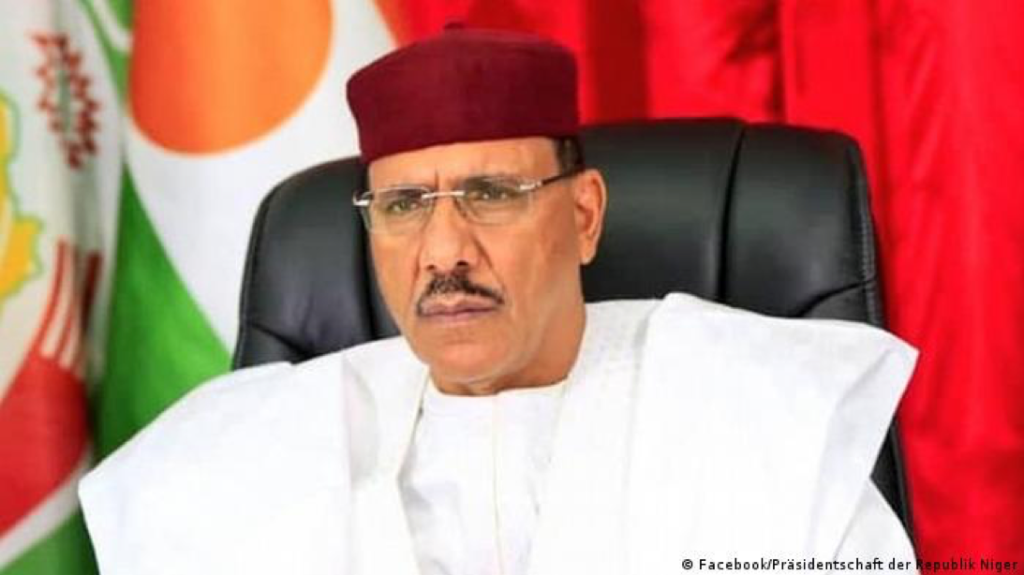
- Dec. 8, Libya’s 5+5 Joint Military Commission held a meeting to discuss the upcoming elections with Russian officials in Moscow, the Russian Foreign Ministry said. The ministry noted that the commission representatives held a meeting with Deputy Foreign Minister Mikhail Bogdanov, who also is the special representative of the president of Russia for the Middle East and Africa. The meeting focused on the upcoming elections in Libya, which will take place on Dec. 24. The Russian side highlighted its hopes for a permanent government and state institutions to be formed in Libya following the elections, and noted that Moscow was ready to provide support to solve the problems of the 5+5 commission.























